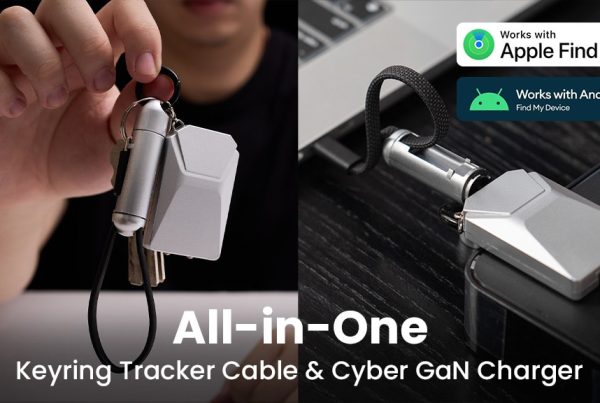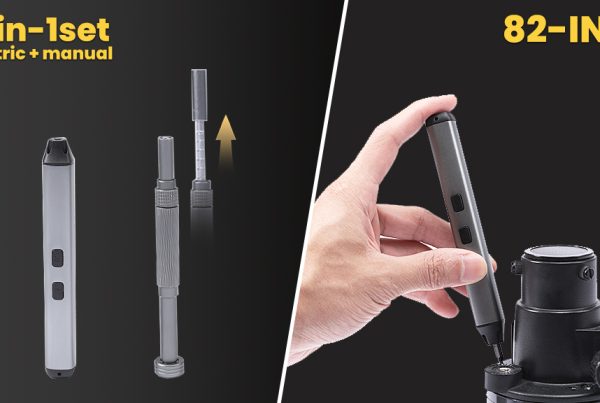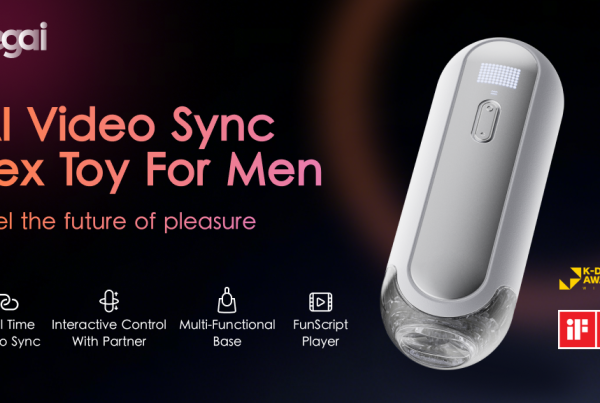Why should we back?
Intro
Welcome to KickstartNew! Today I’m spotlighting a novel input device on Kickstarter: CheerPlay (CheerDots) – the all-in-one pocket touchpad. This small gadget aims to serve as a wireless touchpad, AirMouse, presentation remote, and shortcut generator—all wrapped into one compact form. If you frequently move between devices (laptops, TVs, tablets, projectors) and wish for a unified way to control your interfaces from your pocket, this project might catch your interest.

Why should I back this project?
-
Multi-functional control in one device
CheerPlay combines a touchpad, AirMouse (motion cursor), presenter remote, and programmable shortcut keys. It promises to let you switch modes seamlessly, controlling different devices from a single unit. -
Pocketable & portable form factor
As the name suggests, this device is designed to be ultra compact—small enough to slip into your pocket or carry on a keychain-like setup, giving you control on the go. -
Wireless & cross-device compatibility
The project page emphasizes that it can pair with a range of smart devices (laptops, tablets, smart TVs, projectors, etc.), ideally over Bluetooth or wireless modes, reducing the need to juggle multiple remotes or peripherals. -
Innovative mode switching & shortcuts
CheerPlay claims to support mode toggles and custom shortcuts, which can accelerate productivity (e.g. macros for presentation, media control, navigation). This is compelling for power users who want fewer devices but more flexibility. -
Potential cost & convenience benefit
If this device delivers as promised, it may replace or reduce the need for multiple input tools like a wireless mouse, a presentation clicker, or remote controllers—offering convenience and possible savings.

What are the potential drawbacks you should consider when you back it?
-
Performance trade-offs vs dedicated devices
A hybrid device may not match the responsiveness, precision, or durability of a dedicated high-end touchpad, gaming mouse, or presentation clicker. For heavy users, slight latency, jitter, or sensor drift may become noticeable. -
Battery life & wireless stability
The wireless modes, Bluetooth connectivity, and power consumption are critical. If the battery capacity, recharge cycles, or range are not well engineered, the usability may suffer. -
User interface & mode switching complexity
Switching among touchpad, AirMouse, presentation, and shortcuts may introduce complexity. If the UI or firmware is not polished, users may struggle for intuitive operation under pressure (e.g. during a presentation). -
Durability & hardware tolerances
Because it is compact with multiple moving parts (buttons, mode toggles, switching circuitry), wear, component misalignment, or mechanical failures may occur. In particular, small gadgets often suffer from breakage of internal connectors or casing stress. -
Compatibility & driver support
Supporting a wide range of devices across different operating systems (Windows, macOS, Linux, Android, smart TV OS) is technically challenging. There may be gaps or limitations in driver support, firmware updates, or OS restrictions. -
Crowdfunding delivery risk
As always with Kickstarter projects, delivery can be delayed, features scaled down, or manufacturing challenges arise. What’s pitched may not fully match the final product. -
Trust history concerns
Some backers have raised doubts about CheerTok’s past project deliveries. On Reddit, users mention that earlier CheerTok / Cheerdots campaigns had complaints about missing or malfunctioning units, or delivery failures. This background history should make prospective backers especially cautious.

The reliability of the project
-
Project transparency & documentation
The Kickstarter page includes design details, mode descriptions, and feature diagrams. It appears the creators tried to explain how the device works (touch, glide, remote) to prospective backers. -
Community feedback & criticism
The comment sections show both interest and skepticism. Some potential backers ask detailed technical questions; others voice concerns. The history of previous CheerTok / Cheerdots campaigns being questioned (failure to deliver) is a red flag. -
Feasibility of features
The functions claimed—touchpad, motion-based cursor, presentation buttons—are technically feasible in small devices already in the market. The challenge lies in quality, latency, firmware, and cross-platform support. Therefore the idea is plausible, though execution is key. -
Past track record
Based on public commentary and Reddit discussions, earlier CheerTok or Cheerdots products have had troubled delivery. This past performance is relevant: consistent failures or unmet expectations in earlier projects suggest higher risk for new ones. -
Update activity & communication
A key reliability indicator is whether the creators share regular updates, prototypes, tests, and responsive communication with backers. Prospective backers should review their update history, backer feedback, and responses on the Kickstarter page before pledging.




